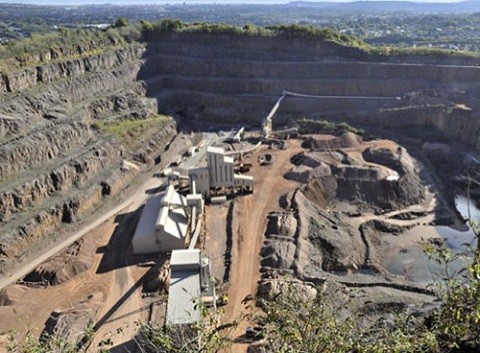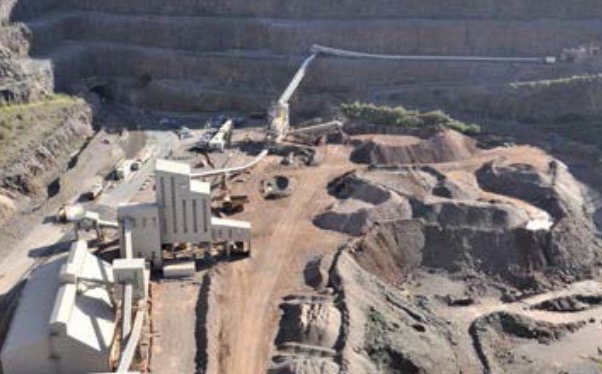Taffs Well Wales
CEMEX UK's Taffs Well quarry in Wales demonstrates how a working quarry can support rare species.

Rare species found at Taffs Well Quarry:
- Peregrine falcon
- Red helleborine orchid
- Blind cave-dwelling spider
CEMEX relies on raw materials such as gravel and sand to make its cement and concrete products. These are essential for building the roads, schools and homes that society needs, but quarrying the materials has the potential to degrade habitats and damage species unless the land is carefully managed. We are determined to have a positive impact on nature by promoting a diverse range of habitats and species while quarries are active, and by rehabilitating disused sites. By restoring former quarry sites we also provide communities with new nature reserves and education and leisure facilities.
Located north of Cardiff in Wales, Taffs Well quarry shows it's possible for rare species and working quarries to comfortably coexist. Taffs Well produces a million tonnes of aggregates each year for road laying and construction.
CEMEX UK owns and operates the quarry, as well as surrounding land including Cardiff Beech Woods, which is designated as an Special Area of Conservation (SAC) under the European Union Habitats Directive. The woods contain three Sites of Special Scientific Interest (SSSI): Garth Wood, which surrounds the quarry on three sides; Fforestganol a Chwm Nofydd; and Castell Coch Woodlands. CEMEX UK manages 70 hectares of UK Biodiversity Action Plan (BAP) priority lowland beech woodland in the area.
CEMEX UK has made biodiversity protection central to the management of the Taffs Well quarry, and contributes to conservation efforts at Cardiff Beech Woods.
Though Taffs Well is a working quarry, we encourage nature to take over in undisturbed areas such as the higher reaches of the rock. We take special care to protect breeding peregrine falcons that nest on the rock face. New blasting methods leave a rougher surface that provides suitable nesting sites for the birds.
The Countryside Council for Wales manages Cardiff Beech Woods in partnership with CEMEX UK, the Forestry Commission, Cardiff County Council and Cadw, the Welsh historical environment agency. We have also helped manage grazing and scrub control on grassland areas outside of the woods. The long-term aim is for the woodland to develop naturally so little conservation work is needed.
Taffs Well Quarry and the surrounding woodland support a variety of plants and animals. Cardiff Beech Woods is considered to be one of the best ancient beech forests in the UK and also contains species such as oak and ash. The woods support ramsons, bluebells, sanicles, ferns and several species of orchid, as well as rarer plants such as red hellborine and coral root orchids, and wood barley.
In addition to peregrine falcons, the woods provide a home and hunting ground for birds of prey including goshawks, sparrow hawks, buzzards, merlins and tawny owls. The rare blind cave spider - found in only one other UK location - lives in the site's Lesser Garth Cave. We fitted a locked grille over the cave entrance to protect the spider's habitat while leaving access for the greater and lesser horseshoe bats that roost there. Bees are also resident at the site.
We plan to restore Taffs Well quarry in phases by spreading waste rock and grass seeds on the unused rock ledges. We would like to turn the quarry into a nature reserve when it closes but there are still large reserves of stone to extract so this will not happen for some time.
With help from experts at the Royal Society for the Protection of Birds (RSPB), we have developed an ambitious ten-year biodiversity strategy. This sets challenging targets, including our goal to create and maintain, by 2020, 1,000 hectares of habitats identified by the UK Government as conservation priorities.
For more information please contact us.
